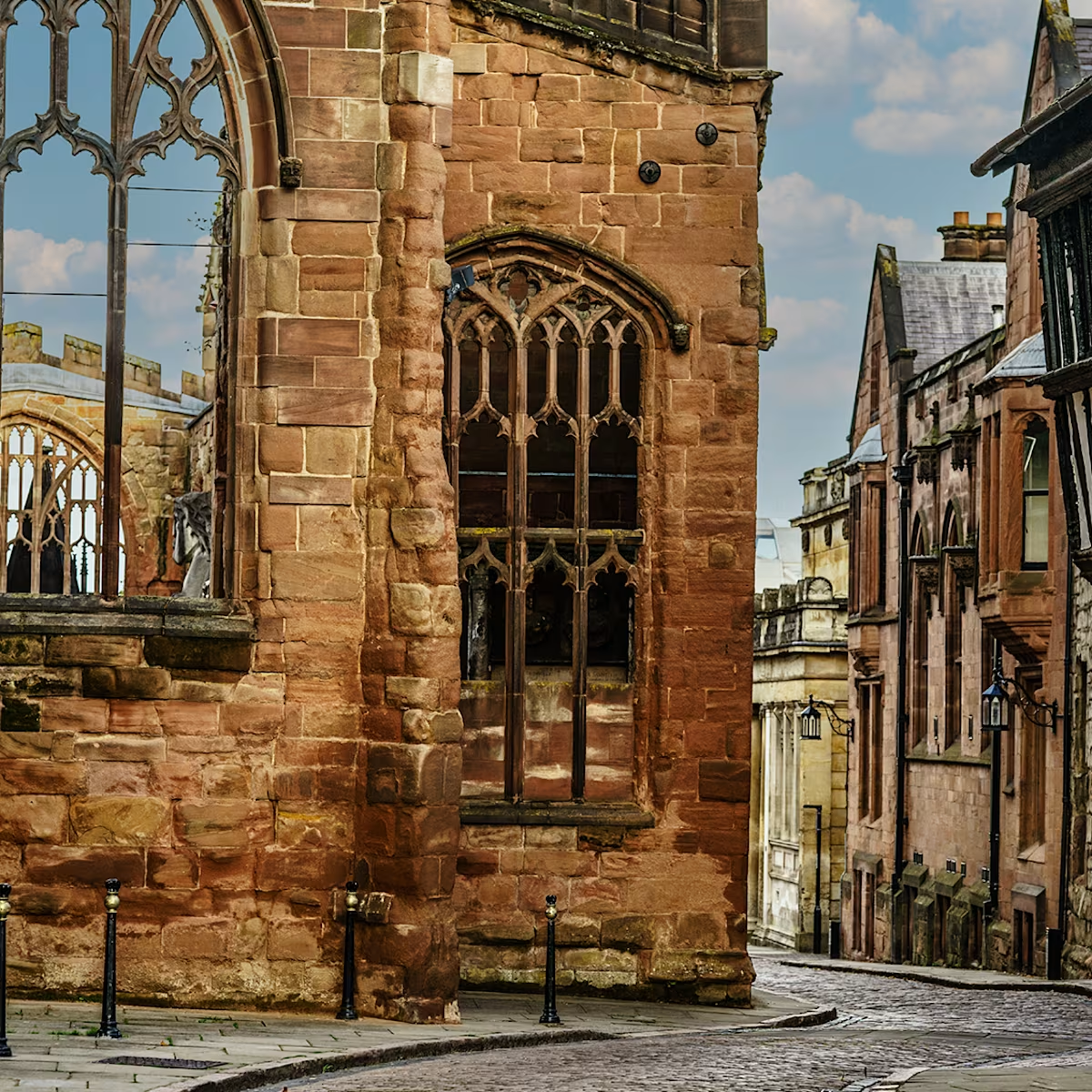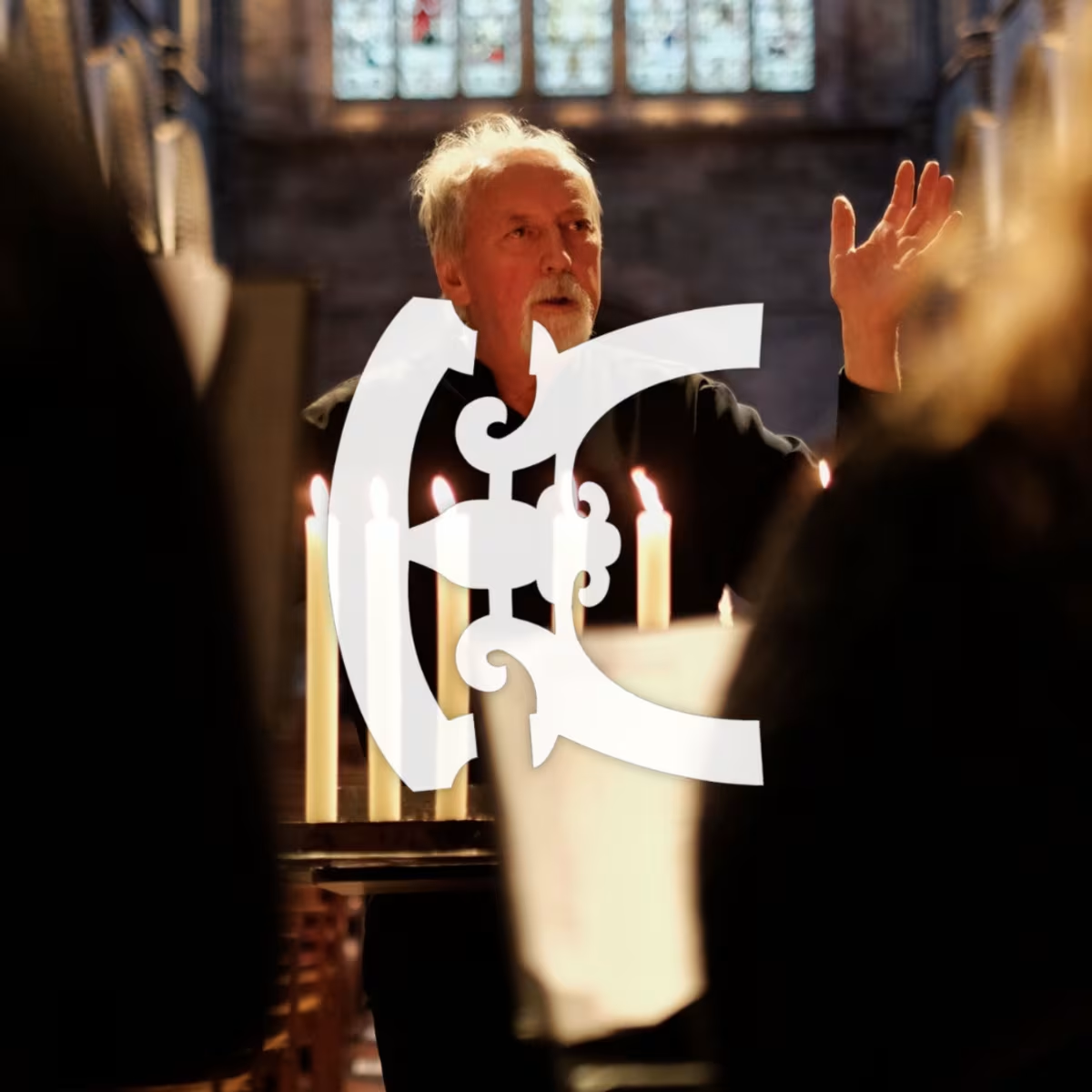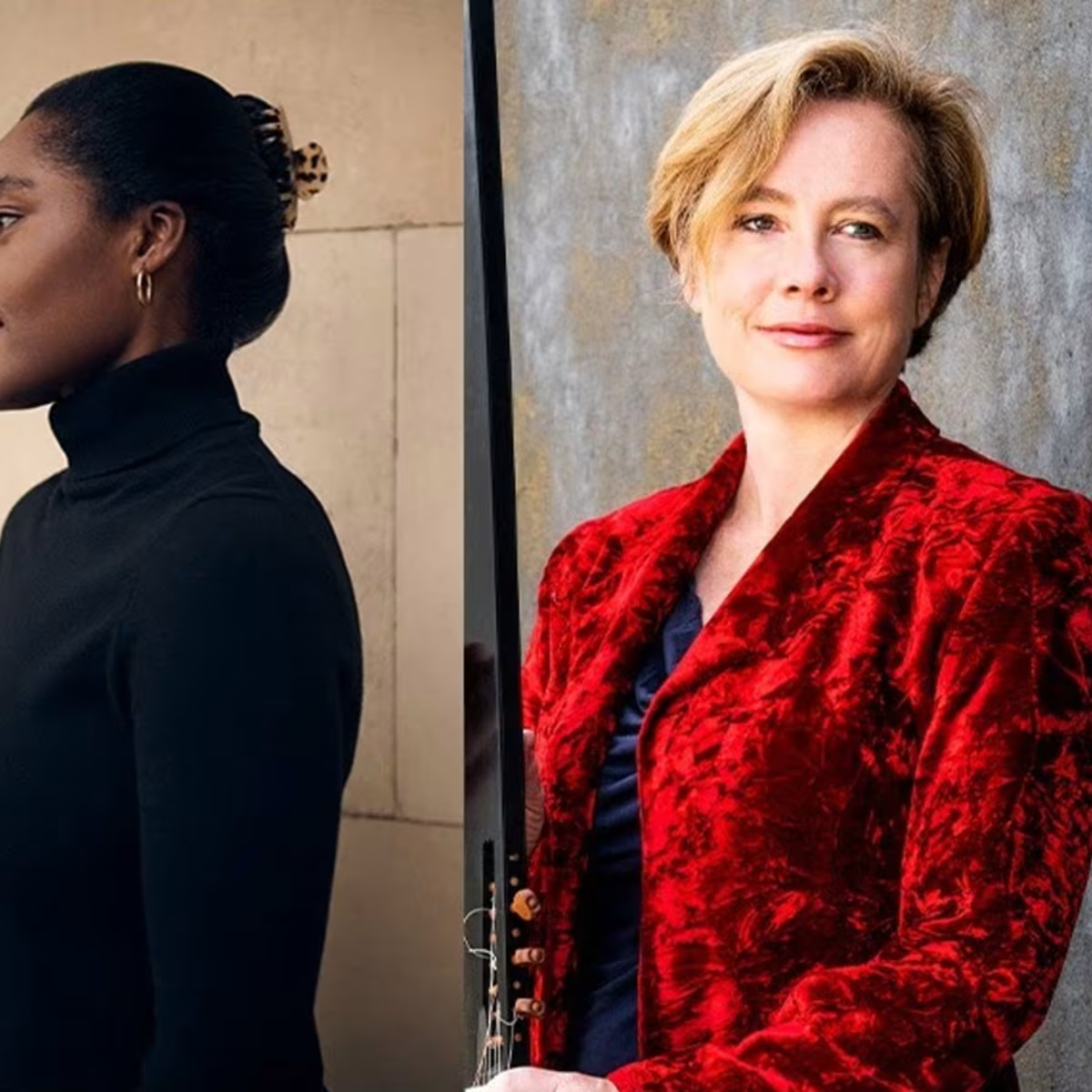Feature
Handel with flair: The magic of Christian Curnyn
Share this

BY SIMON MUNDY | FIRST PUBLISHED 15 JUN 2025
Conductors who become known for being specialists in one musical genre or period are often eager to break out of the typecasting, if for no other reason than to show they can. One thinks of Nikolaus Harnoncourt’s eagerness to record Gershwin's Porgy and Bess at the end of his life, and I remember Christopher Hogwood’s glee at conducting Rachmaninov with the Los Angeles Philharmonic in the Hollywood Bowl in the 1980s when his reputation was inseparable from the Academy of Ancient Music. Christian Curnyn, on the other hand, has spent the last 30 years honing his skills in music from 1600 to 1775, and is quite happy to stay in that era.
Ever since founding the Early Opera Company (EOC) in 1994 after graduating from York University, ‘I’ve done the odd later works – neoclassical ones, like Stravinsky’s Pulcinella and Henze’s Sonata for strings, but I don't really want to go even as far as Mozart any more. I think Gluck is as late as I want to go. I’m not sure I have anything to give later than that.'

‘I started playing the trumpet, then at university I did some directing. Then I went to see Handel’s Ariodante at English National Opera and it blew my mind. By then I was teaching piano in London and putting on my own shows with EOC. Guest conducting became a reality when Scottish Opera booked me for Semele in 2002.’ Curnyn is a Glaswegian, so it is appropriate that everything started there.
‘Semele is the piece I've done the most,’ he proudly remarks, and he finds it very satisfying. ‘William Congreve's libretto is simply brilliant.’ For Handel to pick up a script from one of the finest playwrights of the Queen Anne period was a unique departure, but the result is an English drama in the style of an Italian Opera that is immensely watchable.
Jupiter's aria, ‘Where'er you walk...’ from Handel’s Semele | Richard Croft (tenor), Early Opera Company, Christian Curnyn (conductor)
Semele is the work that brings Curnyn back to the Royal Opera House, Covent Garden, in July, in the new production by Oliver Mears. ‘This is a co-production with Paris and has the same cast. It catches the line between darkness and humour really well.’ The cast has a touch of nominative determinism about it, with Pretty Yende as the irresistible Semele and Ben Bliss as the ever-lascivious Jupiter. They are up against Alice Coote as the vengeful Juno.
‘The thing I love about Handel,’ Curnyn explains, ‘is that while Bach uses complexity on the page, Handel often gets his results so simply.’ While he believes firmly in period staging, Curnyn also thinks ‘contemporary productions are great, because Handel in wigs and frocks can distance us from the theatre and we miss the fun. I used to be obsessed by setting the production “now” but I’ve come to think that it should just be in a period that suits the story.’
Watch the 'Insight' event hosted by Dr Hannah French, exploring the complex themes of Oliver Mears' new production of Handel’s Semele for The Royal Opera House, conducted by Christian Curnyn.
Another Handel opera, Alcina, conducted by Curnyn, was a spectacular triumph at Covent Garden two years ago, partly because of Richard Jones’s production, but mainly because of the glorious performances of Emily D'Angelo, Mary Bevan and Lisette Oropesa. For that and for Semele, Curnyn conducts the Orchestra of the Royal Opera House, not a specialist Baroque ensemble. He, like Harnoncourt and Sir Roger Norrington before him, believes it is the style rather than the actual instruments that matter, especially in a theatre the size of Covent Garden. ‘The Royal Opera used to book the Orchestra of the Age of Enlightenment but the ROH Orchestra itself asked to play Handel. They didn't want to be banned from doing that great repertoire. I don’t want to hear “mock baroque” and I was so moved and delighted by what they did in Alcina. We had a great relationship. The concession was that they used baroque bows.’
He does sometimes insist on period-specific instruments, though. ‘At ENO, for Rameau’s Castor et Pollux, I did ask for baroque flutes. We don't see enough French repertoire,’ Curnyn feels. He led Castor et Pollux at the Komische Oper in Berlin, too, and also conducted Charpentier’s Médée for ENO and Chicago. Last month he conducted the EOC in Rameau’s Pygmalion at Middle Temple Hall.
The trailer for Komische Oper Berlin's production of Rameau's Castor et Pollux, conducted by Christian Curnyn
Curnyn has conducted all over Europe and in the US, although his British connections are as strong as ever. Thinking about where else he has relished working he says, ‘in Germany, I feel totally validated and well supported – though repertoire revivals are terrifying because they’re thrown together in a week, or even with no rehearsals. How the singers do it – I just don’t know. But in rep, you really learn your craft.’ Christian then gleefully admits, ‘I loved working in Australia – three months of bliss in summer’.
Christian Curnyn will be conducting Semele at The Royal Opera House, Covent Garden (30 Jun–18 Jul 2025). You can also listen to Curnyn's latest album – Maurice Greene's Jephtha - with the Early Opera Company, supported by Continuo Foundation. The album is available to purchase on the Chandos Chaconne label and to stream on Spotify or Apple Music.
Greene: Jephtha | Early Opera Company | Christian Curnyn
Share this
Keep reading

Historical performance in a virtual space
In September 2025, the Aural Histories project (funded by the Arts and Humanities Research Council) launched Aural Histories: Coventry.

Jeffrey Skidmore: Playlist
In this playlist, Jeffrey Skidmore reflects on what Ex Cathedra have performed and recorded, as well as what continues to shape their musical identity.

Nardus Williams & Elizabeth Kenny: The Four Humours | Wigmore Hall
The celebrated duo dive headlong into the world of the Four Humours, physical properties believed to govern human behaviour from ancient times until the 1850s.



